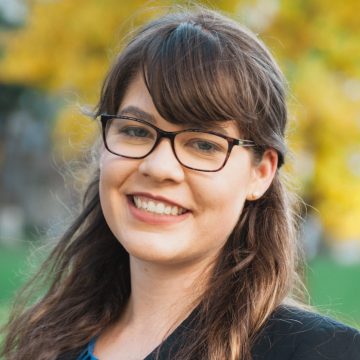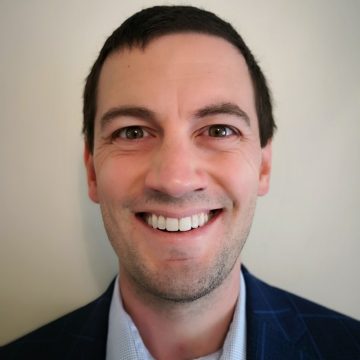Any Person…Any Career…Greater Impact
By Katya Hrichak

Marika Nell, Ph.D. ’20, began her civil and environmental engineering doctoral program to discover technical solutions to environmental problems and follow an academic career track. But upon diving into dissertation research, she envisioned a different career – one in which she could directly impact energy and environmental policy.
“Instead of taking the academic route, I looked for a career in policy to help translate science for policymakers with the hope that my work could have broader, more tangible impacts,” said Nell, a former California Council on Science and Technology (CCST) Fellow. “I realized that more science alone would not be enough to change people’s minds or practices.”
The fellowship was the next step on her career path. As one of 15 CCST Fellows, Nell learned about developing policies and evaluating scientific issues for the California State Legislature and Executive Branch. She now works as a legislative aide in the California State Assembly.
Like Nell, Kevin McDermott, Ph.D. ’19, felt the pull of a policy career as he began the research portion of his physics program. Initially intending to become the director of a particle physics laboratory, he felt a growing disconnect between particle physics research and everyday life. He wanted to effect change directly.
“I knew for myself I needed to do something where the direct output of my work would have an immediate impact serving others while also leveraging my training to the fullest extent,” he said.
Two years post-graduate school, McDermott holds an American Association for the Advancement of Science (AAAS) Science and Technology Policy Fellowship (STPF) at the Department of State. Here, he is learning about policymaking while leveraging his analytical skills.
At Cornell, Nell found Graduate School resources to explore and prepare for her career while supporting her job search regardless of whether she chose a future faculty direction or a path away from academia.

Through the Office of Inclusion and Student Engagement, Nell took an advocacy trip to Washington, D.C. She participated in the AAAS Catalyzing Advocacy in Science and Engineering workshop, ComSciCon-NY, and alumni panels organized by Careers Beyond Academia, and she joined the Cornell graduate student organization Advancing Science and Policy (ASAP). These experiences provided insight and illustrated how her academic skills could be leveraged in a policy career.
McDermott, like Nell, became involved with Careers Beyond Academia and the student organization ASAP. In addition, he discovered the Science Policy Bootcamp course (BME4440) taught by Chris Schaffer, professor in the Meinig School of Biomedical Engineering. The class required small groups to build a policy project from start to finish, giving students the opportunity to simulate careers in science policy.
“No matter what career you end up pursuing, it’s nice to know there is a whole ecosystem of resources to empower doctoral students and postdocs in any field, for any career,” said Susi Varvayanis, executive director of the Graduate School’s Careers Beyond Academia. “The staff at Careers Beyond Academia are here to help you navigate the process and efficiently use your time to connect with professionals and gain practical skills you can leverage for greater impact.”
For those considering future work in policy, Nell and McDermott found the following tips helpful: Practice sharing your work with individuals outside of academia; participate in advocacy trips and science communication workshops; talk to professionals working in policy; and hone your soft skills and emotional intelligence. These skills will help prepare you for the job and set you apart from other candidates.
“At the end of the day, people with Ph.D.s know how to tackle large projects, vet information, troubleshoot problems, and quickly distill complex information,” Nell said, all of which are useful for a career in policy.
